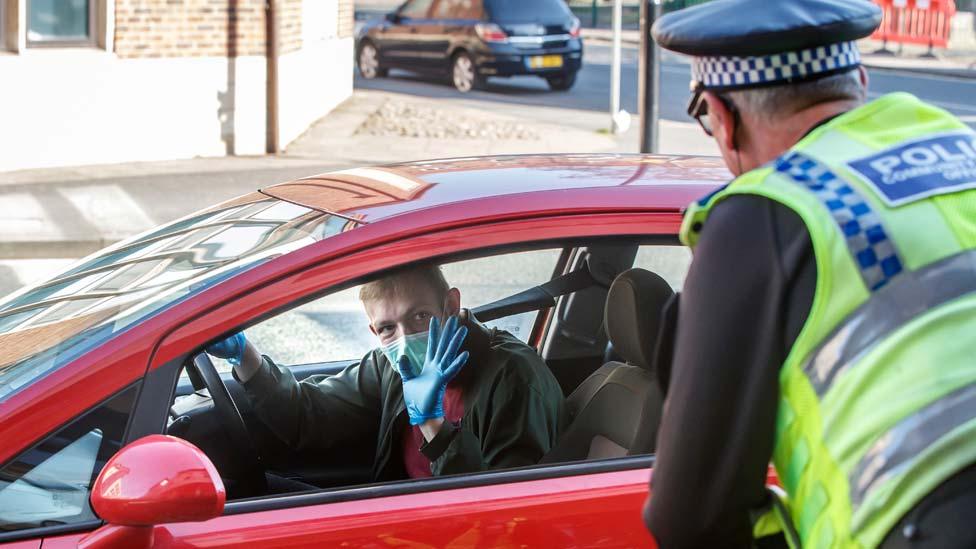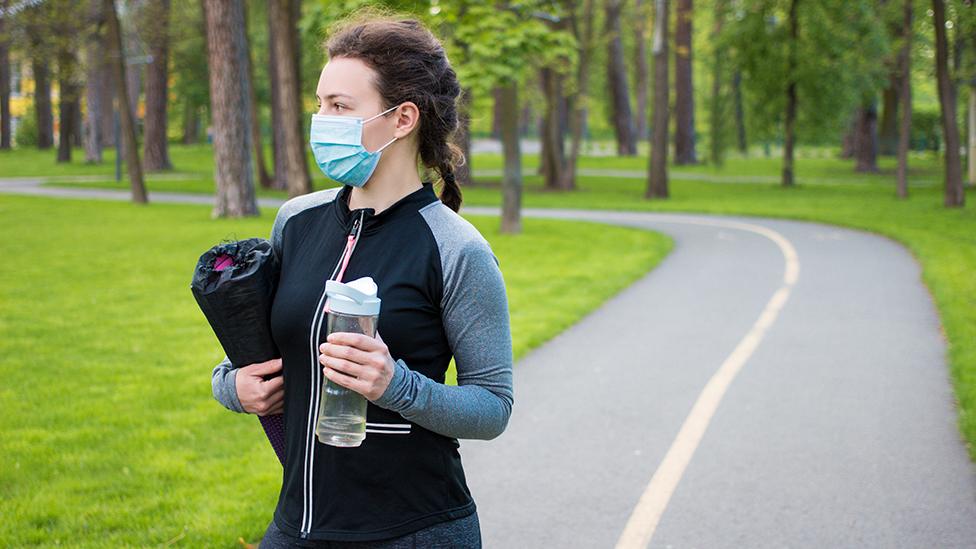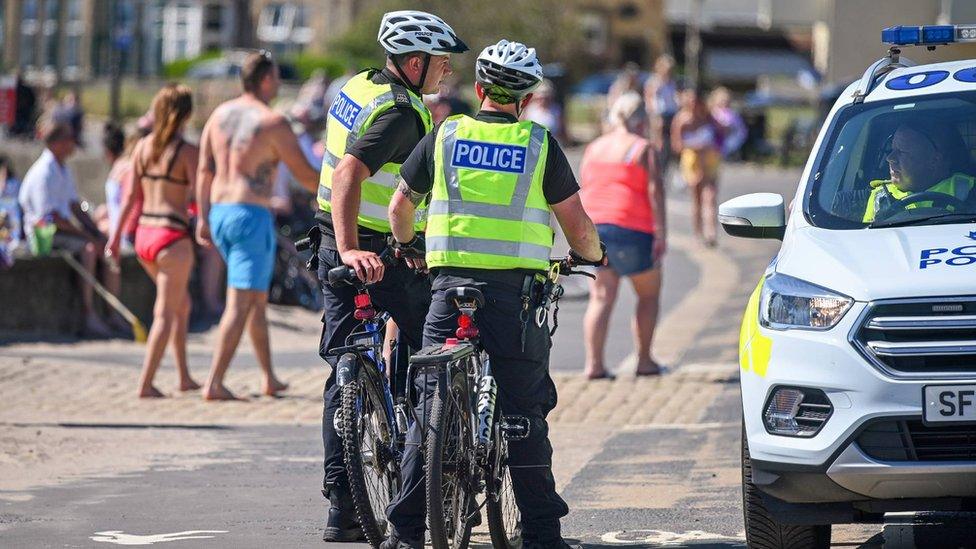Coronavirus: New laws come into force as England lockdown eases
- Published
- comments

Police in England can order people to leave a property if they are breaking new coronavirus laws - but do not have powers to forcibly remove them.
It is now a crime to stay at someone else's home overnight, or to hold gatherings of two or more people indoors or more than six people outdoors, under new legislation.
Officers can fine rule-breakers and arrest them if they do not co-operate.
The laws came into force to coincide with lockdown restrictions being eased.
Gatherings of as many as six people from different households can now take place outdoors - such as in parks or gardens - in England, so long as people remain 2m apart.
In Wales, people from two different households can meet each other outdoors. Groups of four to six people who are not in the same household can meet outdoors in Northern Ireland. And in Scotland members of two different households are already allowed to meet outdoors.
The changes to the English law were made through a statutory instrument - a type of legislation used to amend rules quickly without them needing to be scrutinised and debated in Parliament.
The chair of the National Police Chiefs' Council (NPCC), Martin Hewitt, said personal responsibility was "key" as members of the public "enjoy these new freedoms".
He added that officers would continue to use common sense and discretion and would only issue fines or arrest people as a last resort.
There is a a short list of exceptions, external to the gathering-size limits, including that everyone in the group lives in the same household.
Last week Downing Street said police did not have the power to enter gardens to check how many people were in them.
And the UK government's chief medical adviser, Prof Chris Whitty, said people were allowed to go inside other people's homes to use the bathroom but it was "absolutely critical" that they wiped everything down and washed their hands.
Permitted reasons for staying away from home overnight include:
to attend a close family member's funeral
in order to facilitate moving house
for work, care or voluntary purposes
for a child to stay with a parent/parents they do not live with, if it is "necessary to continue existing arrangements"
Guidance issued to English police forces, external by the NPCC and the College of Policing says officers "may only direct a person to return home" if they are found to have illegally stayed overnight somewhere, with "no powers in the regulations to remove someone or use force".

RISK AT WORK: How exposed is your job?
EXERCISE: What are the guidelines on getting out?
LOOK-UP TOOL: How many cases in your area?
GLOBAL SPREAD: Tracking the pandemic

Health Secretary Matt Hancock said the government had been able to "flip the basis of the law back to specifically outlining things that you cannot do, as opposed to saying you can't do anything unless it's specifically provided for".
Speaking at the daily coronavirus briefing at Downing Street, he added: "I'm very glad we've been able to change the basis of the law - and get away from what was essentially the most authoritarian part of the system."
Scotland's first minister said virus guidelines north of the border could be enforced by new laws if "even a minority" continued to flout them.
Nicola Sturgeon said it was clear that not everyone had complied with her recently relaxed restrictions, with police dispersing hundreds of gatherings over the weekend and car traffic trebling at some beauty spots.
- Published12 January 2021

- Published1 June 2020

- Published25 January 2022
